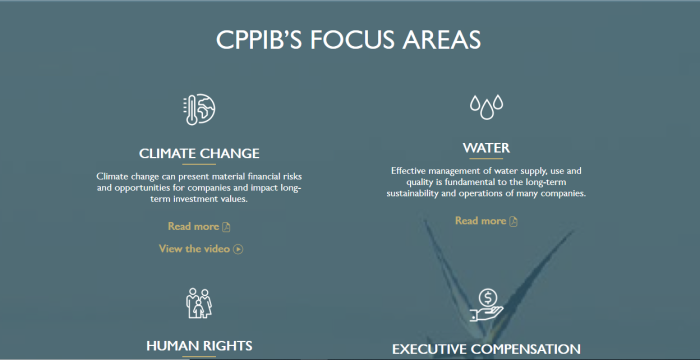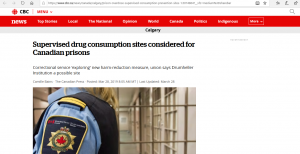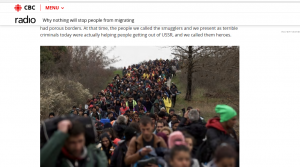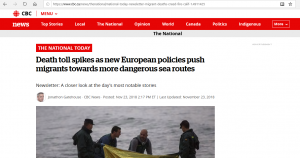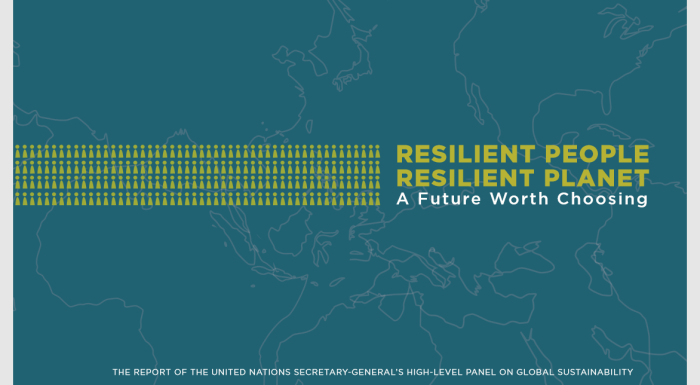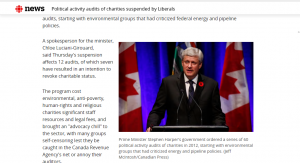
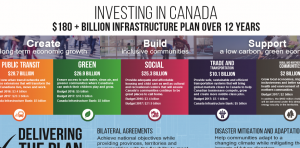
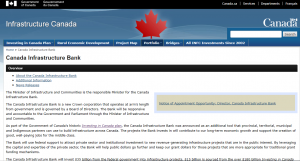
1. Important Links
CLICK HERE, for CIB main page.
CLICK HERE, for the Federal Gov’t website link.
CLICK HERE, for frequently asked questions.
CLICK HERE, for the statement of principles.
CLICK HERE, for Investing in Canada.
CLICK HEREfor the Canada Infrastructure Bank Act.
CLICK HERE, for the Financial Administration Act.
What is “Investing in Canada”?
The Investing in Canada plan is based on three key objectives:
- Create long-term economic growth
- Support a low carbon, green economy
- Build inclusive communities
It is: (I) spend your way to prosperity; (II) climate change scam; and (III) gender and racial agendas.
There are important links between public infrastructure and climate change, which is why climate change mitigation and adaptation needs to be considered in the investment decision-making process. Infrastructure Canada’s 2018 Bilateral Agreements with provinces and territories include a requirement to apply a Climate Lens assessment for certain projects. It also applies to all Disaster Mitigation and Adaptation Fund projects and any winning proposals dealing with mitigation and adaptation under the Smart Cities Challenge. To assist project proponents, Infrastructure Canada has developed a guidance document found here: Climate Lens General Guidance to support carrying out these assessments. In addition, Environment and Climate Change Canada’s Canadian Centre for Climate Services can provide guidance and resources to be used for making climate-smart decisions when planning for the future.
2. How Did This Happen?
[Enacted by section 403 of chapter 20 of the Statutes of Canada, 2017, in force on assent June 22, 2017.]
Some quotes from C.I.B. Act
Canada Infrastructure Bank Act, Section 5(4):
.
Not a Crown agent
(4) The Bank is not an agent of Her Majesty in right of Canada, except when
(a) giving advice about investments in infrastructure projects to ministers of Her Majesty in right of Canada, to departments, boards, commissions and agencies of the Government of Canada and to Crown corporations as defined in subsection 83(1) of the Financial Administration Act;
(b) collecting and disseminating data in accordance with paragraph 7(1)(g);
(c) acting on behalf of the government of Canada in the provision of services or programs, and the delivery of financial assistance, specified in paragraph 18(h); and
(d) carrying out any activity conducive to the carrying out of its purpose that the Governor in Council may, by order, specify.
In case anyone is wonder about the “Financial Administration Act” sections cited, the 2 Acts basically share the language and terminology.
So the bank is not an agent of the Crown, except when
- Giving investment or banking advice
- Collecting and sharing information
- Acting on behalf of the Government
- Doing anything the Governor in Council specifies
In other words, it is essentially a Crown agent.
Purpose of Bank
6 The purpose of the Bank is to invest, and seek to attract investment from private sector investors and institutional investors, in infrastructure projects in Canada or partly in Canada that will generate revenue and that will be in the public interest by, for example, supporting conditions that foster economic growth or by contributing to the sustainability of infrastructure in Canada.
Interesting purpose. It is a Crown Agent (sort of) that seeks investment from private and institutional investors. Also, the projects only have to be “partly” in Canada.
Whenever this government throws out the “sustainability” buzzword, one has to wonder if it is money being shovelled off to some UN project.
note:
Functions of Bank
7 (1) In order to carry out its purpose, the Bank may do only the following:
(a) structure proposals and negotiate agreements, with the proponents of infrastructure projects and with investors in infrastructure projects, with regard to the Government of Canada’s support of those projects;
(b) invest in infrastructure projects, including by means of innovative financial tools, and seek to attract investment from private sector investors and institutional investors in infrastructure projects;
(c) receive unsolicited proposals for infrastructure projects that come from private sector investors or from institutional investors;
(d) support infrastructure projects by, among other things, fostering evidence-based decision making;
(e) act as a centre of expertise on infrastructure projects in which private sector investors or institutional investors are making a significant investment;
(f) provide advice to all levels of governments with regard to infrastructure projects;
(g) collect and disseminate data, in collaboration with the federal, provincial and municipal governments, in order to monitor and assess the state of infrastructure in Canada and to better inform investment decisions in regards to infrastructure projects; and
(h) perform any other function conducive to the carrying out of its purpose that the Governor in Council may, by order, specify.
The C.I.B. may “only” do those things? Glad to know it has a tight leash. Except of course that the Governor in Council may order it to do just about anything else.
3. A Bit Of Overreaching?
Now, in Section 18 of CIB Act, we get to the extent of the investments allowed under the Act. Hold on, because it is a long list.
18 In particular, the Bank may
(a) make investments in any person, including by way of equity investment in, or by making a loan to or acquiring a derivative from, the person;
(b) extend credit or provide liquidity to, or in relation to, any person;
(c) acquire and deal with as its own any investment made by another person;
(d) acquire and hold security or a security interest, including, in Quebec, a right in a security, of any kind and in any form for the due discharge of obligations under an investment or agreement that it makes;
(e) surrender the security, security interest or right in the security and acquire and hold, in exchange, security or a security interest, including, in Quebec, a right in a security, of any kind and in any form;
(f) realize the security, security interest or right in the security made, acquired or held by it on the investment or agreement;
(g) exchange, sell, assign, convey or otherwise dispose of, or lease, the investment, agreement, security, security interest or right in a security;
(h) enter into arrangements or agreements with, and act as agent or mandatary for, any department or agency of the government of Canada or a province, or any other body or person, for the provision of services or programs to, by, on behalf of or jointly with that body or person, and deliver financial assistance on their behalf under the arrangement or agreement;
(i) accept any interest or rights in real property or personal property or any rights in immovables or movables as security for the due performance of any arrangement or agreement with the Bank;
(j) determine and charge interest and any other form of compensation for services provided by the Bank in the exercise of its powers or the performance of its functions under this Act;
(k) acquire and dispose of any interest or right in any entity by any means; and
(l) acquire, hold, exchange, sell or otherwise dispose of, or lease, any interest or rights in real property or personal property or any right in immovables or movables and retain and use the proceeds of disposition.
So sum up, the bank may:
- Invest in any person
- Extend credit to any person
- Buy others’ investments
- Enter into agreements with anyone
- Acquire and release any asset
Not only is this very overreaching, but there seems to be very little oversight or accountability here. Simply reporting to a Minister doesn’t seem adequate to keep unelected bureaucrats in check.
Also, a fair point is an issue of deniability. If a Minister simply were to claim not to know something, or not to probe too deeply, this C.I.B. could still ensure that the bidding gets done.
4. Information Is Privileged
Privileged information
28 (1) Subject to subsection (2), all information obtained by the Bank, by any of the Bank’s subsidiaries or by any of the subsidiaries of the Bank’s wholly-owned subsidiaries in relation to the proponents of, or private sector investors or institutional investors in, infrastructure projects is privileged and a director, officer, employee, or agent or mandatary of, or adviser or consultant to, the Bank, any of its subsidiaries, or any of the subsidiaries of its wholly-owned subsidiaries must not knowingly communicate, disclose or make available the information, or permit it to be communicated, disclosed or made available.
.
Marginal note:
Authorized disclosure
(2) Privileged information may be communicated, disclosed or made available in the following circumstances:
(a) it is communicated, disclosed or made available for the purpose of the administration or enforcement of this Act and legal proceedings related to it;
(b) it is communicated, disclosed or made available for the purpose of prosecuting an offence under this Act or any other Act of Parliament;
(c) it is communicated, disclosed or made available to the Minister of National Revenue solely for the purpose of administering or enforcing the Income Tax Act or the Excise Tax Act; or
(d) it is communicated, disclosed or made available with the written consent of the person to whom the information relates.
.
Offence
31 A person who contravenes section 28 or 29 is guilty of an offence and liable on summary conviction to a fine of not more than $10,000 or to imprisonment for a term of not more than six months, or to both.
5. Illegal To Obtain This Info
Let this sink in:
- The Canadian public is paying for these “investments”.
- The C.I.B. is not accountable to the public.
- We are not given the details of these “investments”.
- It is illegal to try to find out the details
So much for using access to information to get details.
6. Bank Pushes Agenda 2030
At first glance, the Canada Infrastructure Bank seems to be just an investment firm, or a broker for the Federal Government. But looking a little deeper, it seems clearly designed to finance UN Agenda 2030 “sustainable development agenda”. Go through what its areas are, and it is all SDA/Agenda 2030.
Globalist proposal wrapped in a nationalist packaging.
Truly evil.



